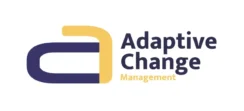By adopting Socioeconomic Kanban as a primary tool in Enterprise Services Planning, organizations can embed economic thinking at all levels. This tool enables leaders and managers to make smarter decisions, optimize resources, reduce costs, and deliver value faster, all while fostering an environment of continuous improvement.
Transformational leaders, by leveraging Socioeconomic Kanban, ensure that economic thinking becomes an inherent part of the organization’s culture. This drives the company toward greater cost-effectiveness, increased business value, and sustained long-term success in the competitive marketplace.
Enterprise Services Planning (ESP) is the strategic pillar for Socioeconomic Kanban because it complements the core principles of Socioeconomic Kanban by enhancing flexibility, responsiveness, and decision-making capabilities within organizations. Socioeconomic Kanban focuses on optimizing workflow and reducing transaction costs while fostering agility in response to market changes. By integrating ESP (company leaders and managers) , businesses can further strengthen their ability to manage complexity and align adaptive change with true economic outcomes.
Adaptive Change Management leverages the synergies of Enterprise Services Planning and Socioeconomic Kanban to achieve adaptive business performance
| Key Benefit | Description | Estimated Impact |
| Enhanced Flexibility | ESP allows Socioeconomic Kanban to respond more dynamically to changing conditions, improving long-term adaptability. | 20%-30% improvement in organizational adaptability, enabling faster responses to market or operational changes. |
| Optimized Cost Management | Predicts and plans for resource needs, improving control over transaction costs and operational inefficiencies. | 15%-25% reduction in operational inefficiencies, leading to up to 20% savings in resource allocation costs. |
| Accelerated Decision-Making | ESP’s data-driven approach enables faster decision-making, aligning services and resources with shifting demands. | 10%-20% faster decision-making, reducing delays in responding to business needs and customer demands. |
| Reduced Transaction Costs | ESP’s alignment with Socioeconomic Kanban helps reduce friction and unnecessary costs, optimizing service delivery. | 20%-35% reduction in transaction costs by minimizing waste and improving cross-functional coordination. |
Enterprise Services Planning (ESP) is the strategic pillar for Socioeconomic Kanban
Enterprise Services Planning (ESP) is the strategic pillar for Socioeconomic Kanban because it complements the core principles of Socioeconomic Kanban by enhancing flexibility, responsiveness, and decision-making capabilities within organizations. Socioeconomic Kanban focuses on optimizing workflow and reducing transaction costs while fostering agility in response to market changes. By integrating ESP (company leaders and managers) , businesses can further strengthen their ability to manage complexity and align adaptive change with true economic outcomes.
Key Benefits of Integrating ESP with Socioeconomic Kanban
The context of value outcomes clearly highlights the benefits of the synergy between ESP (Elasticity Mechanism) and Socioeconomic Kanban, focusing on improving adaptability, operational efficiency, decision-making speed, and market alignment. Including “Socioeconomic Management” is appropriate as it enriches the context, tying it to a broader framework of managing hidden costs, sustainability, and responsible adaptability within businesses. Socioeconomic Management complements these mechanisms by addressing long-term resilience and the reduction of inefficiencies, avoiding redundancy while emphasizing its value for both short- and long-term strategic outcome.
Aligning Business Strategies with Service Execution
The synergies between ESP and Socioeconomic Kanban ensure service delivery aligns with business goals, accelerating product development and improving cost-effectiveness. Companies can expect a 10-20% faster product development cycle by aligning strategies with execution. This success doesn’t rely on abstract new roles but focuses on the company’s hierarchy, including all management levels and expert teams.
Resource Optimization
By forecasting resource needs and optimizing allocation, ESP reduces waste and aligns resources with customer demand, leading to a 15-30% improvement in resource management. This reduces transaction costs and boosts productivity.
Elasticity Mechanism for Adaptability and Proactive Response
Integrating an elasticity mechanism helps businesses respond to market fluctuations and resource availability. This reduces delays and enhances adaptability, improving responsiveness to changing conditions by 20-30%.
Lasting Adaptability and Operational Effectiveness
Elasticity allows companies to make short and long-term adjustments more efficiently, improving scalability and reducing resource waste. This results in a 15-25% improvement in operational efficiency over a shorter time, supporting growth while minimizing inefficiencies.
Adaptive Action/Reaction and Faster Decision-Making
Proactively responding to changes without overreacting can reduce decision-making time by 20-40%. AI-powered features enhance data analysis, enabling faster and more accurate insights, allowing product development teams to act with greater speed and precision.
Market Alignment and Service Optimization
Adaptive action optimizes resources and better aligns services with customer expectations, resulting in a 15-20% improvement in market alignment. This strategic approach ensures businesses can meet customer demands more effectively.
Conclusion
By integrating these elements, businesses can significantly enhance their agility, reduce operational friction, and improve both short-term and long-term outcomes.
The content effectively demonstrates the synergies between Enterprise Services Planning (ESP) and Socioeconomic Kanban, focusing on adaptability, operational effectiveness, decision-making speed, and market alignment. By incorporating Socioeconomic Management, it strengthens the narrative, ensuring a cohesive approach to business sustainability, economic efficiency, and long-term resilience. This integration ensures both the reduction of inefficiencies and the embedding of economic thinking at all levels, providing clear, measurable outcomes for businesses. Ultimately, it supports a unified strategy that drives adaptable performance and meaningful output in both the short and long term. Integrating Enterprise Services Planning with Socioeconomic Kanban creates a powerful synergy by integrating management. It strengthens the effectiveness of Socioeconomic Kanban by providing a framework for managing resources, improving responsiveness, and optimizing economic outcomes. Together, they help organisations deliver economic value, faster, and at lower cost while maintaining the flexibility to adapt to ever-changing customer demands.
Contact Us
We Shape The Future!
valuable. adaptive. innovative.
Our path of cooperation: Building trust, fostering relationships, and delivering value.
Get In Touch
- +43 664 5366975
- +43 3322 43215
- +381 65 6251 806
- [email protected]
Hours
- Mon-Fri 9:00AM - 5:00PM
- Sat 10:00AM - 2:00PM
